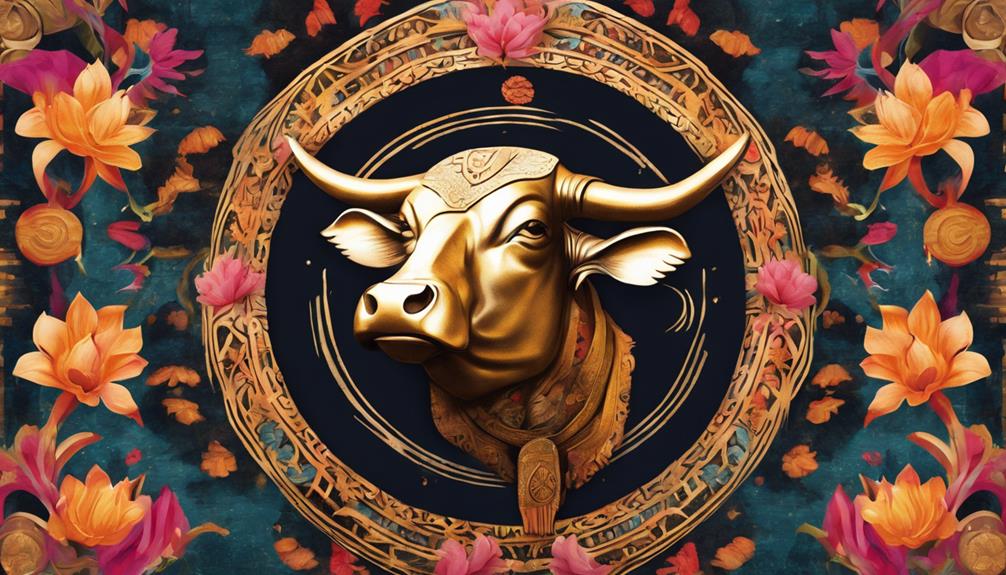The Swastika symbol in Hinduism has ancient origins deeply rooted in Hindu culture and beliefs. It symbolizes well-being, good fortune, and cosmic harmony, tracing back to the Indus Valley Civilization. Within Hinduism, it carries profound spiritual significance, representing virtues, powers of deities, and fostering spiritual growth. This symbol, alongside others like the lotus flower and Om, forms a framework for understanding the universe.
The evolution of the Swastika symbol over centuries reflects the interplay between tradition and innovation, exemplifying the dynamic nature of Hindu symbolism. Its modern interpretations and controversies, particularly its association with Nazism, ignite debates on cultural sensitivity and religious tolerance. Discover the intricate layers of meaning and cultural significance behind this sacred emblem in Hinduism.
Table of Contents
Key Takeaways
- Rooted in ancient Hindu culture, the swastika symbol signifies well-being, good fortune, and prosperity.
- The symbol represents cosmic harmony and the interconnectedness of all things in Hindu beliefs.
- Deeply intertwined with spirituality, the swastika carries sacred meanings and cultural significance in Hinduism.
- Used in rituals and ceremonies, the swastika symbolizes virtues and powers of deities.
- The symbol has evolved over centuries, reflecting changing contexts and exemplifying the interplay between tradition and innovation.
Ancient Origins of the Swastika Symbol
The swastika symbol, deeply rooted in ancient Hindu culture, holds significant historical and religious importance, dating back thousands of years. Its symbolic representation and cultural significance are intertwined with the very fabric of Hindu beliefs. The swastika, derived from the Sanskrit word 'svastika,' is a sacred symbol denoting well-being, good fortune, and prosperity. In Hinduism, it's often associated with the sun, representing its life-giving and purifying qualities.
The swastika's origins can be traced to the Indus Valley Civilization, where it was used as a symbol of cosmic harmony and the interconnectedness of all things. Its presence in Hindu rituals, ceremonies, and art signifies auspiciousness and divine blessings. The four arms of the swastika point in four cardinal directions, symbolizing the cyclical nature of existence and the eternal principles of dharma.
Through its intricate design and profound meanings, the swastika symbol in Hinduism continues to be a potent emblem of spiritual significance and cultural heritage, transcending time and geographical boundaries.
Sacred Meanings in Hinduism
With deep symbolic roots in Hindu culture, the sacred meanings attributed to various elements hold profound significance in shaping the spiritual beliefs and practices within the religion. In Hinduism, spiritual significance is deeply intertwined with cultural representation, creating a rich tapestry of symbolism that resonates with followers. The concept of dharma, the moral order that upholds the cosmos, is a fundamental pillar in Hindu philosophy, emphasizing the importance of righteousness and duty. This spiritual significance extends to rituals and ceremonies performed by adherents, each carrying symbolic meanings that connect individuals to the divine.
Moreover, deities in Hinduism embody various aspects of existence, with each deity symbolizing different virtues and powers. For example, Lord Ganesha represents wisdom and remover of obstacles, while Goddess Lakshmi signifies prosperity and abundance. These representations serve as focal points for meditation and worship, allowing devotees to connect with the divine energies they embody. Overall, the sacred meanings in Hinduism provide a framework for understanding the universe and one's place within it, fostering spiritual growth and cultural identity.
Symbolism in Hindu Culture

Deeply embedded in the fabric of Hindu culture, symbolism plays a pivotal role in conveying intricate spiritual messages and connecting individuals to divine energies. The cultural significance of symbols in Hinduism is profound, with each symbol carrying layers of meaning that reflect traditional practices and religious beliefs.
Symbols like the lotus flower, representing purity and enlightenment, are often used in Hindu art and rituals to symbolize spiritual growth and the journey towards self-realization. The Om symbol, a sacred sound and spiritual icon, embodies the essence of the universe and is chanted during meditation to connect with the divine.
Additionally, the significance of colors like red, symbolizing power and fertility, and yellow, representing knowledge and learning, are deeply ingrained in Hindu culture and are used in religious ceremonies to evoke specific energies. Through these symbols, Hindus express their devotion, reverence, and connection to the divine, enriching their spiritual practices and cultural traditions.
Historical Usage and Evolution
Symbolism in Hindu culture has seen a dynamic evolution over centuries, with each symbol adapting and transforming to reflect changing societal contexts and spiritual interpretations. The swastika symbol, initially a sacred icon representing good fortune, prosperity, and auspiciousness, has undergone significant evolutionary changes and cultural adaptations throughout history. In ancient times, the swastika was commonly used in Hindu ceremonies, engraved on temples, and depicted in art as a symbol of well-being and positive energy.
As Hinduism spread to different regions and interacted with various cultures, the swastika symbol also evolved in its usage and interpretations. It became a symbol of universal harmony, eternity, and the cycle of life and rebirth. The swastika's intricate design and profound significance made it a versatile emblem that transcended geographical boundaries and cultural barriers.
Through its historical journey, the swastika symbol exemplifies the intricate interplay between tradition and innovation, showcasing how symbols in Hinduism have continuously adapted to new contexts while retaining their core essence and spiritual meanings.
Modern Interpretations and Controversies

The evolution of the swastika symbol in Hindu culture has sparked modern interpretations and controversies, reflecting the symbol's complex journey through time and cultural interactions. In contemporary times, the swastika's association with Nazism and the atrocities of World War II has led to significant modern controversies. The misappropriation of the swastika by the Nazis has resulted in its widespread stigmatization in Western societies, overshadowing its original sacred meaning in Hinduism.
Furthermore, the phenomenon of cultural appropriation has added another layer of complexity to the swastika's modern interpretations. The adoption of the swastika by various Western countercultural movements, often divorced from its Hindu origins, has fueled debates about the ethics of borrowing sacred symbols from other cultures without proper understanding or respect for their significance. This has raised important questions about cultural sensitivity, religious tolerance, and the need for informed dialogue when engaging with symbols that hold deep cultural and religious meanings for certain communities.
Frequently Asked Questions
How Did the Swastika Symbol Spread to Other Cultures Outside of Hinduism?
When considering the spread of the swastika symbol outside of Hinduism, it is important to acknowledge how cultural appropriation and misinterpretation have influenced its global dissemination. Its ancient origins have led to diverse interpretations.
Are There Any Specific Rituals or Ceremonies in Hinduism That Involve the Use of the Swastika Symbol?
In Hinduism, the swastika symbol holds immense symbolic significance. It is often used in cultural celebrations and spiritual practices, representing auspiciousness and good fortune. The symbol's various meanings are integrated into rituals and ceremonies.
What Are Some Lesser-Known Variations or Interpretations of the Swastika Symbol Within Hinduism?
Investigate lesser-known variations of the swastika in Hinduism. Symbolic interpretations vary, with spiritual significance tied to different deities. Cultural connections exist, reflecting ancient beliefs. Explore further to uncover these rich, diverse meanings.
How Has the Perception of the Swastika Symbol Changed in India Over the Centuries?
Over the centuries, the perception changes of the swastika symbol in India have been deeply influenced by its cultural impact. Understanding these shifts sheds light on the symbol's evolving significance and the complex narratives surrounding it.
Are There Any Famous Historical Figures in Hinduism Who Were Associated With the Swastika Symbol?
Famous historical figures in Hinduism associated with the swastika symbol include Lord Vishnu and Lord Ganesha. The swastika has cultural impact and historical significance as a symbolic representation with deep spiritual connection for Hindus across generations.
Conclusion
To sum up, the swastika symbol holds ancient origins in Hinduism, representing various sacred meanings and symbolizing auspiciousness in Hindu culture.
Throughout history, the symbol has evolved and been utilized in different contexts, leading to modern interpretations and controversies.
Despite its association with negative connotations in recent times, it's important to recognize the significance and deep-rooted symbolism of the swastika in Hindu tradition.